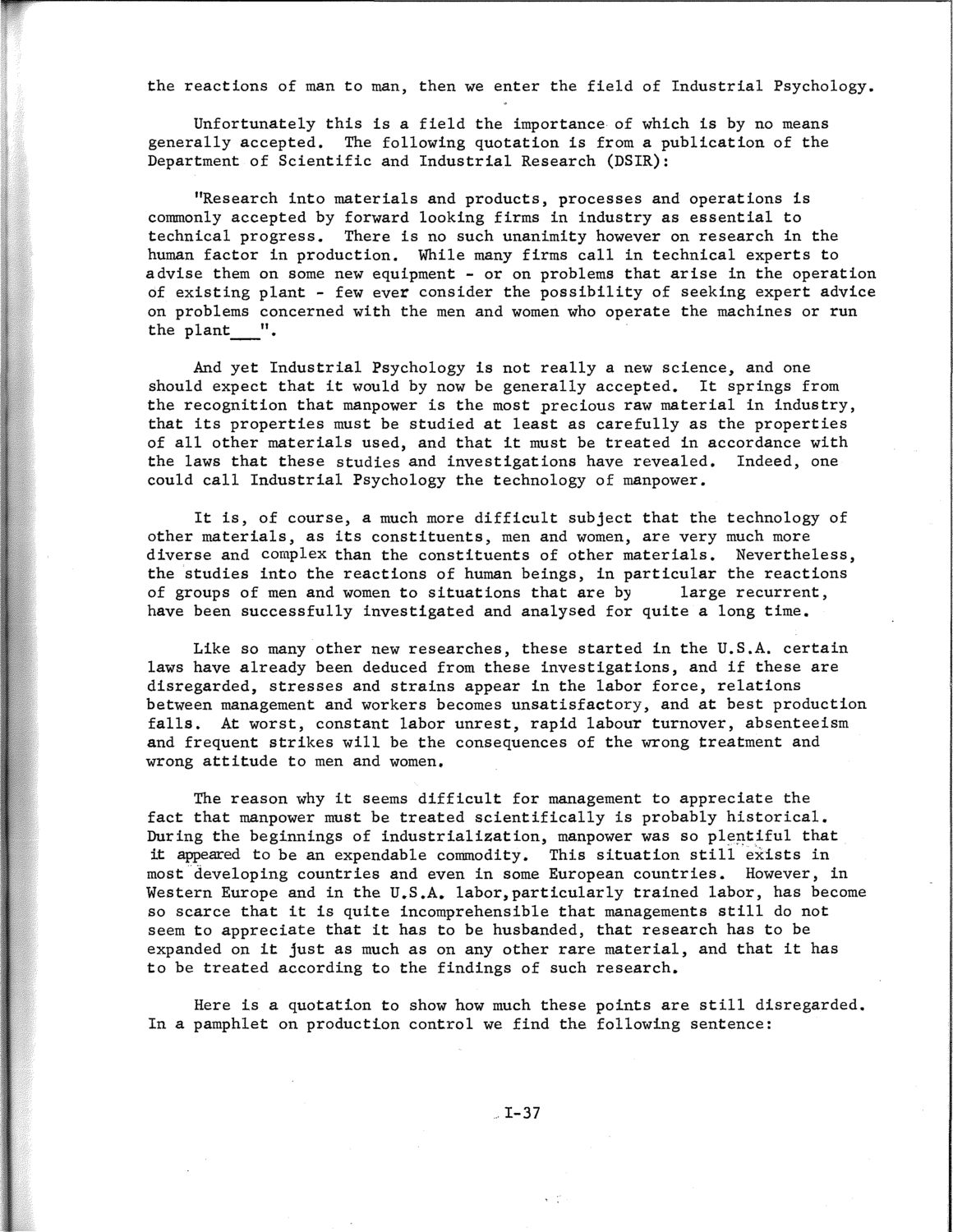| |
| |
Caption: SWE - Proceedings of the First International Conference of Women Engineers and Scientists
This is a reduced-resolution page image for fast online browsing.

EXTRACTED TEXT FROM PAGE:
the reactions of man to man, then we enter the field of Industrial Psychology. Unfortunately this is a field the importance of which is by no means generally accepted. The following quotation is from a publication of the Department of Scientific and Industrial Research (DSIR): "Research into materials and products, processes and operations is commonly accepted by forward looking firms in industry as essential to technical progress. There is no such unanimity however on research in the human factor in production. While many firms call in technical experts to advise them on some new equipment - or on problems that arise in the operation of existing plant - few ever consider the possibility of seeking expert advice on problems concerned with the men and women who operate the machines or run the plant ". And yet Industrial Psychology is not really a new science, and one should expect that it would by now be generally accepted. It springs from the recognition that manpower is the most precious raw material in industry, that its properties must be studied at least as carefully as the properties of all other materials used, and that it must be treated in accordance with the laws that these studies and investigations have revealed. Indeed, one could call Industrial Psychology the technology of manpower. It is, of course, a much more difficult subject that the technology of other materials, as its constituents, men and women, are very much more diverse and complex than the constituents of other materials. Nevertheless, the studies into the reactions of human beings, in particular the reactions of groups of men and women to situations that are by large recurrent, have been successfully investigated and analysed for quite a long time. Like so many other new researches, these started in the U.S.A. certain laws have already been deduced from these investigations, and if these are disregarded, stresses and strains appear in the labor force, relations between management and workers becomes unsatisfactory, and at best production falls. At worst, constant labor unrest, rapid labour turnover, absenteeism and frequent strikes will be the consequences of the wrong treatment and wrong attitude to men and women. The reason why it seems difficult for management to appreciate the fact that manpower must be treated scientifically is probably historical. During the beginnings of industrialization, manpower was so plentiful that it appeared to be an expendable commodity. This situation still exists in most developing countries and even in some European countries. However, in Western Europe and in the U.S.A. labor,particularly trained labor, has become so scarce that it is quite incomprehensible that managements still do not seem to appreciate that it has to be husbanded, that research has to be expanded on it just as much as on any other rare material, and that it has to be treated according to the findings of such research. Here is a quotation to show how much these points are still disregarded. In a pamphlet on production control we find the following sentence: . 1-37 ,
| |